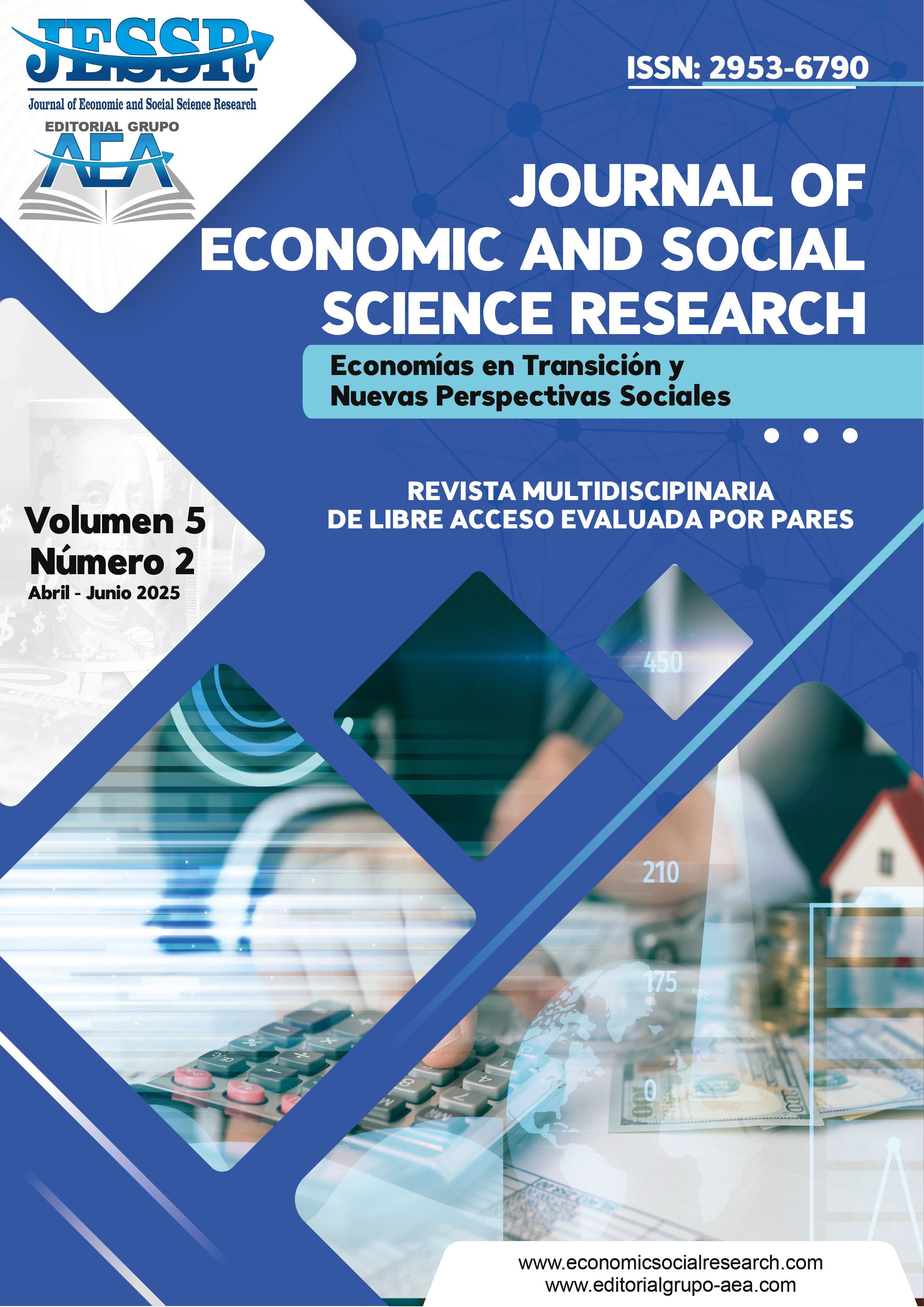Comparison of critical thinking in middle school and high school students in urban and rural institutions
Main Article Content
Abstract
Inequalities between urban and rural institutions have revealed gaps in the development of critical thinking, especially when comparing middle school and high school levels. These differences are related to curricular disarticulation between educational levels and to territorial conditions, such as access to infrastructure, teacher training and pedagogical resources. This problem directly affects the quality of educational processes and equity in the development of key competencies. Under a qualitative, non-experimental approach and with an exploratory and analytical scope, this study analyzes the differences in the development of critical thinking among students in urban and rural contexts. Through a systematic review of recent scientific literature, pedagogical, curricular and contextual factors that influence this competence were identified. The findings reveal that urban schools have a greater capacity to implement active methodologies, while rural schools face structural limitations. It is concluded that it is necessary to promote educational policies with a territorial approach and vertical curricular articulation to ensure integrated and equitable educational trajectories for all students.
Downloads
Article Details
Section

This work is licensed under a Creative Commons Attribution-NonCommercial 4.0 International License.
How to Cite
References
Abrami, P. C., Bernard, R. M., Borokhovski, E., Waddington, D. I., Wade, C. A., & Persson, T. (2015). Strategies for teaching students to think critically: A meta-analysis. Review of Educational Research, 85(2), 275–314. https://doi.org/10.3102/0034654314551063 DOI: https://doi.org/10.3102/0034654314551063
Andrews, R. (2015). Critical Thinking and/or Argumentation in Higher Education. In: Davies, M., Barnett, R. (eds) The Palgrave Handbook of Critical Thinking in Higher Education. Palgrave Macmillan, New York. https://doi.org/10.1057/9781137378057_3 DOI: https://doi.org/10.1057/9781137378057_3
Cajamarca-Correa, M. A., Cangas-Cadena, A. L., Sánchez-Simbaña, S. E., & Pérez-Guillermo, A. G. (2024). Nuevas tendencias en el uso de recursos y herramientas de la Tecnología Educativa para la Educación Universitaria. Journal of Economic and Social Science Research, 4(3), 127–150. https://doi.org/10.55813/gaea/jessr/v4/n3/124 DOI: https://doi.org/10.55813/gaea/jessr/v4/n3/124
Comisión Internacional sobre los Futuros de la Educación. (2021). Reimagining our futures together: A new social contract for education. UNESCO. https://doi.org/10.54675/ASRB4722 DOI: https://doi.org/10.54675/ASRB4722
Facione, P. A. (2015). Critical Thinking: What It Is and Why It Counts. Insight Assessment. https://www.insightassessment.com
Galiani, S., Gertler, P., & Schargrodsky, E. (2008). School decentralization: Helping the good get better, but leaving the poor behind. Journal of Public Economics, 92(10-11), 2106–2120. https://doi.org/10.1016/j.jpubeco.2007.09.013 DOI: https://doi.org/10.1016/j.jpubeco.2008.05.004
Lipman, M. (2003). Thinking in education (2nd ed.). Cambridge University Press. DOI: https://doi.org/10.1017/CBO9780511840272
Loor Giler, J. L., Lorenzo Benítez, R., & Herrera Navas, C. D. (2021). Manual de actividades didácticas para el desarrollo de la comprensión lectora en estudiantes de subnivel de básica media. Journal of Economic and Social Science Research, 1(1), 15–37. https://doi.org/10.55813/gaea/jessr/v1/n1/18 DOI: https://doi.org/10.55813/gaea/jessr/v1/n1/18
Madrid-Gómez, K. E., Arias-Huánuco, J. M., Zevallos-Parave, Y., Alfaro-Saavedra, M. N., Camposano-Córdova, A. I., & Yaulilahua-Huacho, R. (2023). Estrategias activas para el aprendizaje autónomo: Un enfoque en Alumnos de Secundaria. Editorial Grupo AEA. https://doi.org/10.55813/egaea.l.2022.53 DOI: https://doi.org/10.55813/egaea.l.2022.53
Mérida-Serrano, R., González-Alfaya, M. E., Olivares-García, M. de los Ángeles, Rodríguez-Carrillo, J., & Muñoz-Moya, M. (2020). El Prácticum, un espacio para la investigación transformadora en los contextos educativos infantiles. REICE. Revista Iberoamericana sobre Calidad, Eficacia y Cambio en Educación, 18(2), 17–34. https://doi.org/10.15366/reice2020.18.2.001 DOI: https://doi.org/10.15366/reice2020.18.2.001
Moreno-Rodriguez, C. J., Otavalo-Criollo, I. A., Gallardo-Chiluisa, N. N., Díaz-Avelino, J. R., Ochoa Reyes, R. D., Moreno-Gudiño, B. P., Peñaherrera Andrade, R. S., & Ojeda-Ojeda, J. J. (2024). Gestión del Conocimiento y Educación en el Desarrollo Organizacional y Académico. Editorial Grupo AEA. https://doi.org/10.55813/egaea.l.98 DOI: https://doi.org/10.55813/egaea.l.98
Pacheco-Altamirano, A. M., Camposano-Córdova, A. I., Torres-Acevedo, C. L., Oré-Rojas, J. J., Gavidia-Anticona, J. A., Yauri-Huiza, Y., & Rojas-Quispe, Ángel E. (2023). Comprendiendo la Lectura: Del Nivel Literal al Crítico en Estudiantes de EBA. Editorial Grupo AEA. https://doi.org/10.55813/egaea.l.2022.40 DOI: https://doi.org/10.55813/egaea.l.2022.40
Paul, R., & Elder, L. (2019). The Miniature Guide to Critical Thinking: Concepts and Tools (8th ed.). Foundation for Critical Thinking. DOI: https://doi.org/10.5771/9781538133842
Puyol-Cortez, J. L., & Mina-Bone, S. G. (2022). Explorando el liderazgo de los profesores en la educación superior: un enfoque en la UTELVT Santo Domingo. Journal of Economic and Social Science Research, 2(2), 16–28. https://doi.org/10.55813/gaea/jessr/v2/n2/49 DOI: https://doi.org/10.55813/gaea/jessr/v2/n2/49
Terrazo-Luna, E. G., Riveros-Anccasi, D., Gonzales-Castro, A., Ore-Rojas, J. J., Rojas-Quispe, A. E., Cayllahua-Yarasca, U., & Torres-Acevedo, C. L. (2023). Desarrollo del Pensamiento Creativo: mediante Juegos Libres para Niños. Editorial Grupo AEA. https://doi.org/10.55813/egaea.l.2022.29 DOI: https://doi.org/10.55813/egaea.l.2022.29
Terrazo-Luna, E. G., Riveros-Anccasi, D., Torres-Acevedo, C. L., Rojas-Quispe, A. E., Cencho Pari, A., Coronel-Capani, J., & Yaulilahua-Huacho, R. (2023). Habilidades Perceptivas: Mejorando el Aprendizaje Remoto en Estudiantes de 5 años. Editorial Grupo AEA. https://doi.org/10.55813/egaea.l.2022.30 DOI: https://doi.org/10.55813/egaea.l.2022.30
UNESCO. (2020). Replantear la educación: ¿Hacia un bien común mundial?. Organización de las Naciones Unidas para la Educación, la Ciencia y la Cultura. https://unesdoc.unesco.org/ark:/48223/pf0000374029





